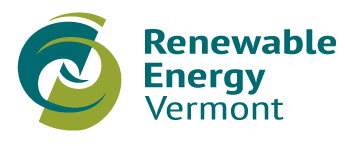On the day the Vermont Climate Council convened for its monthly meeting in June, the thermometer in Portland, Oregon — a city at almost the exact same latitude as Burlington, Vt. — crested to 116 degrees Fahrenheit, an all-time high.
The ramifications of this climate change-induced heat wave for Oregonians and others up and down the West Coast were severe, with hundreds of people paying with their lives. Around the same time, we also saw deadly flooding in Germany. Record highs in Antarctica. Deadly temperatures in Pakistan. And Lake Mead and Lake Powell — essential drinking-water reservoirs for millions of Americans — at critically low levels.
Here in Vermont, intense rains, warming and drought are bringing their own climate-related consequences, with immense economic and quality of life costs to Vermonters. Cyanobacteria blooms recently closed all of Burlington’s public beaches. Crews had to quickly rebuild a washed-out railroad bed before Amtrak started running again. Floods in Brattleboro closed roads and washed out a bridge, all while we’re in the midst of a 13-month drought.
Meanwhile, wildlfire smoke from the West is worsening our air quality. And a recent report from Vermont’s Department of Financial Regulation found that “climate trends are making Vermont’s climate warmer and wetter, which is also leading to an increase in severe weather more likely to cause greater property damage.”
While what’s happening around the country, world and locally weigh heavily on me, I remain optimistic that Vermont will step up and into this moment. We can lead in the way we led with Covid-19. We can follow the science, and lean into our communities. We can work hard to leave no one behind. And we can demonstrate that a small state with a clear focus can tackle big issues, benefitting Vermonters while also owning our obligation to act on a global issue.
On July 26, the Vermont Climate Council met again. It was the first time since we convened in November that the full body discussed an initial set of proposed strategies beginning to outline the type, scale and pace of solutions we will need to make the progress that our planet — and the world’s leading climate scientists — have made clear is required.
While this was a big meeting and an important milestone for this endeavor, it was not the first time we have had similar conversations. Back in 2007 and again in 2018, Vermont embarked on two significant initiatives to identify and advance strategies for our state to do its part in response to a warming world. Among the results? Climate plans that highlighted we must significantly reduce our reliance on imported fossil fuels, turn to cleaner, more efficient technologies, and embrace strategies that recognize the role our natural resources — like forests and farmlands — must play.
Unfortunately, little progress was made on the recommendations outlined in those plans.
The Vermont Climate Council can build on those and other previous efforts, plans and public engagement. Thankfully, now, progress is required by the Global Warming Solutions Act. And the focus is broader — not only on significant greenhouse gas pollution reductions, but on adaptation and resilience and how this essential transition will serve frontline and impacted communities, like lower-income Vermonters and Vermonters of color.
The Vermont Climate Council’s work is imperative. It is not the beginning of this conversation in Vermont, nor will the initial Climate Action Plan, due in December, be the end of it. This process and plan will be iterative and the work ongoing.
And it must be firmly grounded in what the planet is so clearly telling us. It must also be grounded in what people are telling us. Undertaking this important work will require new types of consistent, authentic engagement and meaningful opportunities for public input.
In the coming weeks and months, the Climate Council will be bringing Vermonters into a deeper conversation about the strategies that will work for their lives, their communities, and this Brave Little State. It’s my hope that as many Vermonters as possible participate, share their experience, their knowledge, their needs, and help us collectively craft a path forward that enables us to do this important work — equitably, and at the scope and scale required.
As the worlds’ leading climate scientists have made clear, we have fewer than 10 years to collectively cut the world’s climate pollution by half. Federal action, including significant climate infrastructure investments, will play a critical role in our work on clean energy, justice, and jobs — and we’re grateful for the leadership of our federal congressional delegation on these issues. But every individual, community and state also has an obligation to act. And now it is beyond time to turn from decades of deliberation, debate, and dawdling to a decade of delivery.
